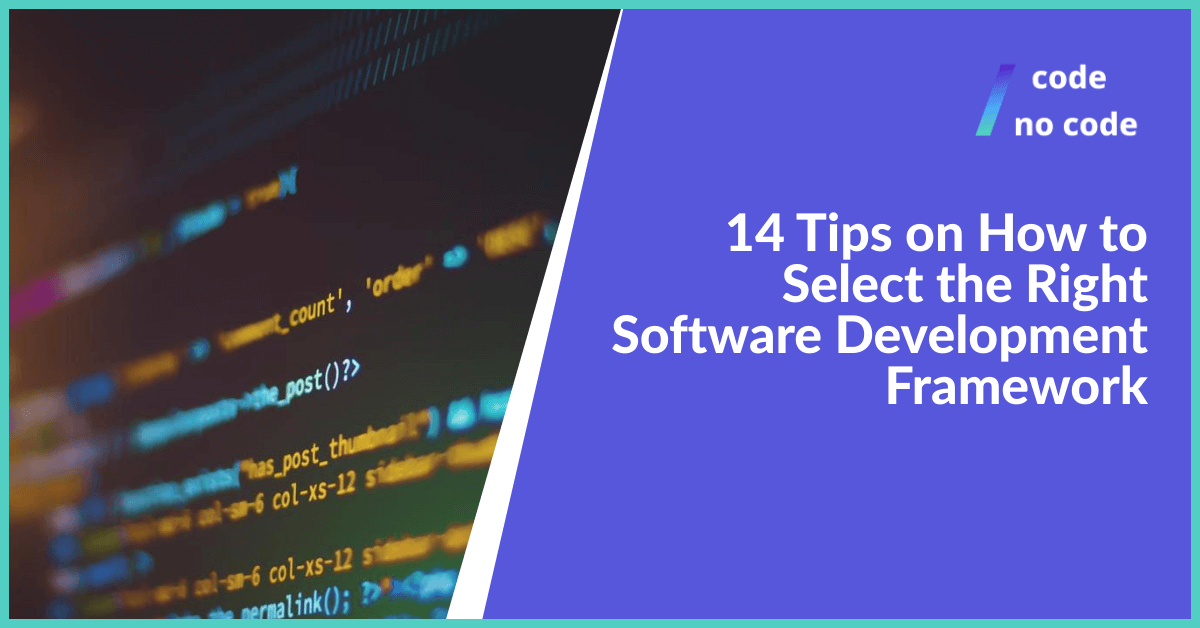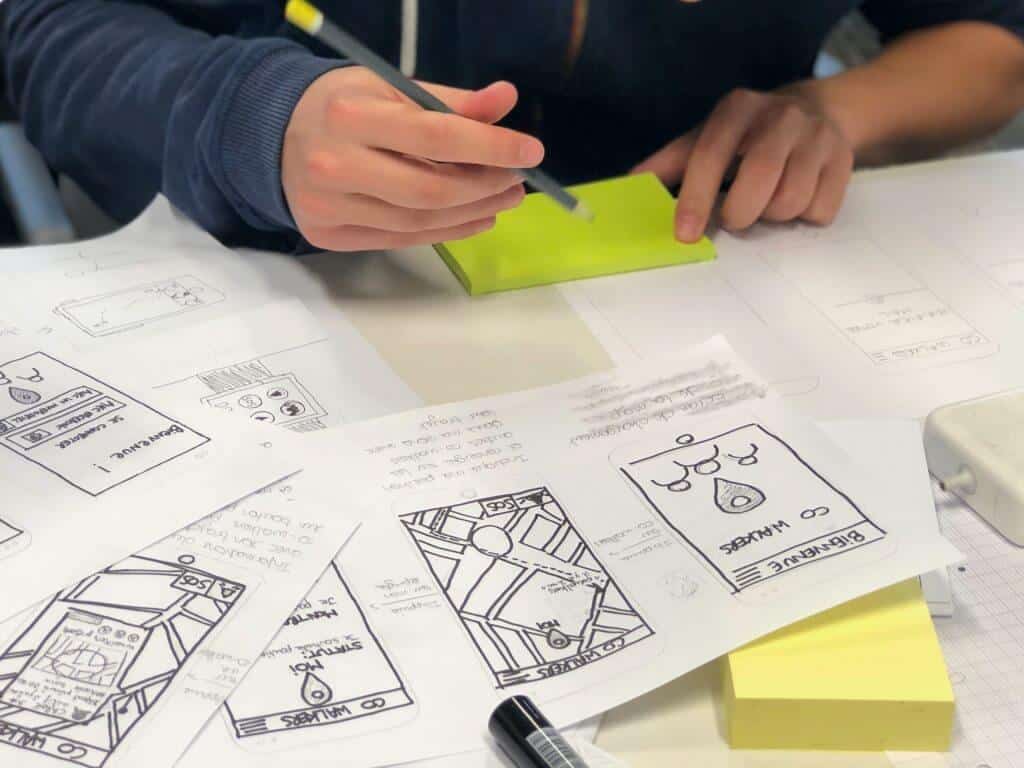
Top 10 Best Outsourced Product Development Companies
The year is 2024. Outsourcing, once the boogeyman of corporate development horror stories (“They took our jobs!”) has now become a badge of honor—a cunning strategy adopted...
If you plan to dive into the art of software development, you need software development frameworks that will help the best way they can. Using the right tools limits the errors you experience in developing applications. These software development frameworks are tools developed[1] by software engineers to ease you, the web developer, of some tasks. Some tasks they help with include developing web applications and making the use of a programming language easier, among others. In simple terms, a framework consists of programmed codes used to ease the creation of other programs. They are made for web developers. Selecting the best development framework in this digital era is important. However, when you use the wrong framework, say for web design or to write code faster, you limit rather than boost productivity.

As a software developer, you can never rule out the importance of using frameworks. However, some good reasons why you need the right software framework for web development include:
● Reducing the occurrences of errors when you use the best development frameworks. To improve results as a developer, improve the quality of the framework, or change the entire application you use.
● New programming languages, tools, and designs are easy to introduce using software frameworks. This reduces the effort you put in when developing other software.
● You hinder your ability as a developer when you use the wrong software frameworks. The framework makes or mars the quality and organization of tasks. Developing web applications and meeting objectives becomes difficult using the wrong framework.
These software development frameworks can be combined with No Code tools to make your development lightning fast. You can read our article about What is No Code to find out more.
To choose the right framework, you need to understand what you need the framework for. You must ensure you are not making a mistake in your choice of framework.
Here are questions to help you determine if the framework is right for you.

Photo by Artem Sapegin on Unsplash
The end-users of the application are the topmost considerations in selecting the framework. How will the users use it? Is it easy to navigate?
Frameworks with an excellent user interface help to notice and reduce mistakes, hastening your job as a developer. Conversely, the framework will be of no use if the user interface is poor.
Software developers create most frameworks to fulfill specific tasks. For example, some work best with developing small applications, while others develop larger applications. Rather than adjust the framework to suit your needs, get the most suitable development framework for your job.
Codeigniter, Slim, or other micro frameworks will serve better if you have to develop smaller applications. However, for larger applications, frameworks like Zend and Symfony are preferable.
Well-known frameworks are complete and are always evolving to meet the needs of developers. Most times, the more popular a framework is, the more ideas, plug-ins, and application tools are available.
The more developers use the framework, the more information you find on it when you need help. Always go for the popular framework[2], to be on the safe side.
Use frameworks that agree with the hosting requirements of the app you are developing. Some frameworks work well only with shared hosting plans. The popular frameworks in this category include CodeIgniter, CakePHP, PHP frameworks, etc.
The second group of frameworks does not require shared hosting. However, these frameworks need dedicated hosts servers to function. Frameworks in this category include non-PHP frameworks, Pylons, Ruby on Rails, Django, etc.
The learning curve of each framework is different from others. Micro frameworks have the simplest learning curves, while large frameworks are difficult to learn, including more components and tools. Micro frameworks are also easier to operate.

Photo by Hitesh Choudhary from Pexels
A framework like Laravel has a medium learning curve and is neither easy nor difficult. So if time is something you don’t have, opt for easy-to-learn frameworks to develop smaller apps.
To enjoy using any framework, ensure that the choice of framework reflects your style of logic. Don’t use a framework if you don’t think like it. There is a good chance you will have bad experiences with them. Instead, find a framework that agrees with your logic on most occasions.
For the framework to be an option to consider, all documentation records should be available.
The API documentation and a detailed description are necessary. If the frameworks are not well documented, you will spend time and resources discovering how it works.
Unit testing allows the developer to break a program into portions to test the performance. A unit test isolates different sections of a code to determine the correctness. The test is done during the development phase of software programs.
Unit testing is peculiar to different programming languages. For example, NUnit is the unit testing framework for .net languages.
Some frameworks have an automated unit testing tool; the tool is built in to help developers validate the correctness of a code. However, some unit testing tools are manual, requiring extra skills and expenses for use.
Some frameworks are open-source developer platforms. The tools used on these platforms are free and have no licensing costs, even for commercial use.
While this is limited to a few frameworks, most have attached costs for licensing. Review the licensing cost worth for the developer tools needed for the project. If the costs of the framework tools are above your budget, try other frameworks.
Answering these questions related to your reason for needing a framework will help you select the most appropriate[3]. Even in building applications and web application development tasks, these points will help your choice.

Photo by Christina Morillo
Though the selection phase is difficult, you can make it easier. With these steps explained below, you will reduce the stress involved and increase satisfaction with your chosen software framework in no time. The steps to follow to ease the selection process are:
The programming language you use for web or app development will determine the type of framework you work with.
You have to be fully aware of the features you need so you don’t make ignorant decisions. To know the frameworks, carry out a detailed impact assessment survey. To conduct an impact assessment for your development task:
● Determine the opportunities and project goals to meet up to. It will help narrow the framework selection process.
● Consider the strengths, limitations, functions, affected processes, and solutions your application proffers.
● Determine the impact of the right framework on your business.
● Confirm the number and kind of users affected by the framework you pick.
● Be aware of the financial obligations tied to the chosen framework.
The impact assessment survey helps you find the framework’s problems, loopholes, and potential. Without carrying out this assessment, you can employ the use of frameworks and tools not needed for the task.

Photo by Amélie Mourichon on Unsplash
Rank your needs in order, and determine which framework features are the most valuable for your task. Ranking your priorities will narrow your framework selection phase.
Based on your priorities, you can rank these needs into:
● Essential Needs. Meeting these needs is important for the software you develop. It includes all the problems the framework you chose must provide solutions to.
If your task needs software frameworks, your chosen framework should offer shared hosting services. It must also help in building applications from scratch.
● Conditional Needs. The needs are not as essential but help improve your software development productivity and quality.
● Additional Needs. Those needs are neither essential nor conditional but will be useful someday.
Reach out to other experts who use similar frameworks and programs to help you make an informed selection.
As much as you can, seek advice from experts who develop the kinds of software you deal with. For example, the opinion of an expert developer who deals with large apps may not be useful if you deal with smaller applications.
Once you identify the development framework that best answers your needs, analyze the cost of extra tools and add-ons you need that are compatible with the framework. Asking for ridiculous discounts on the extra tools makes you seem amateur.
Be sure that your final decision is influenced by the software development problems you want solutions to.
It is important to know that there’s no ‘one size fits all’ framework. Where you can’t find the perfect fit, go with the frameworks that meet the most needs.

Photo by Christina on Unsplash
Before you make the final decision on the development framework to deploy, here are bonus tips to always remember:
● When choosing the best software framework, have proof to convince you of your choice. Choosing based on your gut feeling is wrong.
● When looking for the most excellent option, the statistics the frameworks claim to have shouldn’t sway you.
● Some developers show off compelling demos to sell. These demos may be good, but the real software may be whack. These frameworks will not do as they promise. Ensure your test the software before use.
● Work with experienced team members. A development team with a first-class team experience in frameworks eases development for software frameworks.
● Do your best to choose a reputable company. They ensure that the software development framework of choice is not a scam.
● New technologies and frameworks are promising but may not possess the right development framework code compatible with the app in development. For example, new ideas may not have a proper database access framework.
● Don’t sign a contract with the web developers if the terms sound unclear. Several software developers will write the contract to favor themselves. So ensure you understand the details before signing an agreement.
Selecting good tools for software development is something to take seriously. Selecting the right framework should be a walkover for you with the criteria above.
To wrap everything up, understand that using the right framework isn’t the only choice you have to deal with. You also need the right skills to get the right software framework up and going.
Software development frameworks can be combined with No Code tools to make your development lightning fast. You can read our article about What is No Code to find out more.
Also, don’t forget to follow us on Twitter to get regular updates on the No Code industry.